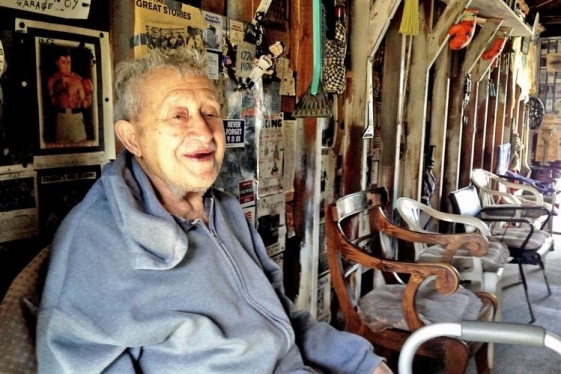
Alessandro Masi (Secretary General - Società Dante Alighieri)
La Società Dante Alighieri, per la lingua italiana in America e nel mondo

When you think about the institutional teaching of the Italian language in the world, the Dante Alighieri Society is the organization historically responsible for this purpose. Our language has a long tradition and means culture and pleasure, anywhere, and it is for our fellow Italians who emigrated to America many years ago, and for their descendants, a point of reference for them feeling (also) italian. Those who emigrated often spoke only the dialect, which they continued to speak in their homes, but their descendants soon integrated in the American society, losing the use of Italian language, sometimes together with a vowel at the end of their family names. It was not until the new recent generations that the language came again to be an interest, and a proud sense of belonging.
The Dante Alighieri Society has just had its eighty-first congress, in Cagliari, Sardegna. Our important guest this week is its Secretary General, Prof. Alessandro Masi, who has been working for several years to promote and enhance our wonderful Italian language. We thank him for his time.
Prof. Masi, since 1999 you’ve been the Secretary General of the Dante Alighieri Society. Please tell us something about this glorious institution.
The Dante Alighieri Society was founded in 1889, thanks to the poet Giosuè Carducci. Since then it has never stopped, not even in the most difficult times such as those of the two world wars, to offer its service to our fellow Italians, especially abroad: first to those who emigrated to North Africa, and later also for those who participated in the two waves of emigration to the Americas. Our activities are always growing, it is important to note that this growth follows the steady increase in demand for Italian language and culture all over the world.
You have an extensive network in the USA. Where are your headquarters? To how many students you have taught the Italian language?
As we know, in the United States our Italians communities are very strong and they are counting on people who have achieved success through hard work, coming to illustrious positions and earning the honor and the respect of other Americans. Many of them enlisted in the U.S. Army during the second world war and were those who made possible the communication and the early relations between the Americans and the Sicilians (and then the Italians in southern Italy) after the landing in which they came to liberate Italy from fascism. The Dante Alighieri Society has for those fellow Italians a particular attention, as evidenced by the extensive program carried out and in progress during 2013, year of Italian culture in the United States: we have presented new media projects, such as the Divina Commedia on DVD and the project of The Literary Parks © where everybody can enhance the excellence of historical, landscape and gastronomic Italy of yesterday and today.
In the U.S., we are present with 10 locations: Anchorage, Boston, Denver, Detroit, Gainesville, Miami, New York, Pittsburgh, Pueblo, Seattle. We offer 200 courses, attended by 4,000 students, a figure that bears no resemblance to the actual demand of knowledge to the Italian language which for the USA, where ours is the third most studied language, comes from the 4% of the entire mass of students. We are improving our offer with a series of programs that will see the implementation of a real bridge of culture and knowledge between the two countries. I believe that the United States is for our young people an inexhaustible source of news, a very important example in the cultural field – I’m talking about film, theater, literature - and the same can be Italy for young Americans, whether of Italian heritage or not.
We are in contact with NIAF, the most important association representing the Italian-Americans, with which we are developing a telematic project for the training of teachers of Italian language in America. We are very interested to work together with those who are Americans in all respects, and it is right that they feel as a symbol that flag which means freedom, but who treasure in their hearts pride and happiness for their Italian origin, and this is a very beautiful and important.
2013 is the Year of Italian Culture in the United States. What events have you organized for this year, and which are scheduled for the latter part of 2013?
We have long favored a profitable exchange and cooperation with the Italian Ministry fo Foreign Affairs, in Italy and especially abroad: and in collaboration with them, who coordinate all the events that have been and are part of the year of Italian culture in the United States, we decided to focus our efforts primarily on the city of Boston, where we have a home of our own, a high level team and a large group of members. We brought an Italian absolute excellence such as the Divina Commedia, with a contemporary mode titled "An Infernal Marathon" directed by Lamberto Lambertini and based on an idea of Paolo Peluffo: every chapter of Hell is contained in a series of DVDs and declaimed with appropriate brilliance and tone - the version for the United States is obviously subtitled in English – with the accompaniment of music and images that describe a great but still little known part of Italy, at least with respect to how much they deserve to be appreciated, valued and visited: from the salt mines of Mozia to the foundries in Agnone, there are many preciousness of different parts of Italy that we coupled to the verses of Dante’s masterpiece. One way to enhance and promote both past and present, culture and tourism, technology and craftsmanship, the winning characteristics of a country that has no equal for variety of its offer in many different fields of interest and attraction for all citizens of the world. This project, realized thanks to the collaboration of ARCUS, which gained approvation, enthusiasm and interest all over the world, thanks also to the support of the Directorate General for Italians Abroad and Migration Policies in the person of Ambassador Cristina Ravaglia, which promoted a wide dissemination of the film throughout North America and South America. The DVDs can be purchased according to the procedures contained in our website www.ladante.it , which is now about to change on the basis of a profound improvement that will happen very soon.
The Italian language is one of the most appreciated in the world. Can you please help us understand why?
In this regard I developed some ideas in these twenty years of experience, first as deputy and then as Secretary General since 1999. Mine is not so much the idea that wants to flaunt the established position of Italian among the most popular languages in the world: ours is primarily a language of culture. We are not a common language, such as English or Mandarin or Spanish, but with respect to them, the specific added value for the study of the Italian language is its intrinsic connection with the unparalleled cultural offerings of our country, which is difficult to understand and appreciate without really knowing Italian. I would say that Italian is the flower garden that everyone would like next to his house: a cultivation of the spirit, a wealth. Studying Italian one has the impression of cultivating a small treasure in one's mind and conscience. It is a language rich in vowels, which gives the extraordinary musicality that the whole world appreciates: and the Italian is in fact the language of opera and bel canto.
What are your plans for the future to continue to defend, diffuse and promote the Italian language and culture in the U.S. and in the world?
We can say that we have created a paradigm, which comes from a prophecy that wants in a few years, or something more, the Italian language disappeared. Starting from this unfortunate prediction, our mission is instead to ensure that the Italian does not disappear, but rather to protect the words of our beautiful language. The goal is therefore to try to study and understand the strengths of our culture starting from the lemma of the word. We do more and more and we will do it in three directions. On the one hand, we are moving on a strategic communication plan on social networks (for example, one of our highly successful program is on twitter, called "The Decameron in 100 tweet", a tweet a day for 100 days as 100 are the days of Boccaccio's Decameron: there is a hashtag where to comment, awards are won, there is a great turnout, which confirms that we brought a lot of kids to read or reread the Decameron, with very positive feedback). On the other hand, we defend the quality of our language through PLIDA certification, which is one of four certifications recognized by the Italian Ministry of Foreign Affairs with the CLIQ Association (Consortium of Italian Language Quality). Third, through the enhancement of training programs and innovation to meet a demand for educational update that allows us to defend our national identity but with the perspective of a well-integrated system that welcomes the affirmation of our identity not in terms of defense , but of participation, of pride, of sharing, of openness: a mode that is proper and historically inherent in the Italian culture and our heritage.
Some eminent scholars debate the use of different Italian nouns and adjectives to describe the protagonists of the various phases of the Italian experience in the United States. What do you think about it?
The way I see it, the term "Italian emigrated to America" can certainly describe those Italians, like my grandfather who came to Boston to work, which in fact were part of the migration but then, for various reasons, they returned home, perhaps having earned enough to afford it and get a fresh start in their country of birth. Those who left Italy but then stayed in the US, I think we can define "Italian-Americans". Their descendants, born in America and better integrated into that society, in my opinion can be described as "Americans of Italian descent."
You may be interested
-
Pavarotti. Il mondo di Big Luciano. Anteprim...
Il mondo di Luciano Pavarotti e la sua grande carriera di cantante lirico rivivranno il 23...
-
'Dante's Inferno' TV Series in the Works at F...
The contemporary reimagining of the 14th century poem is among the first projects being de...
-
'Extraordinary' Italian guard Eleonora Villa...
WASHINGTON STATE ANNOUNCED the signing of Eleonora Villa to the women's basketball program...
-
'Garage museum' finds a home
Thanks to a story published in the Observer-Reporter on April 14, the effort to find a pe...
-
'Godfather of Pittsburgh' to premiere Nov. 10...
Pittsburgh's Vince Isoldi may or may not be a gangster. A&E is hoping you'll tune in N...
-
'Little Italy' owner, Pioneer Square icon pas...
Luigi De Nunzio died Monday at the age of 63. The Pioneer Square restaurateur and icon had...
-
'Take it down!': Protests of Columbus monumen...
Protests of Pueblo's Christopher Columbus monument slowed following the 2020 abolition of...
-
'That's Amore' is a little like 'Moonstruck'...
When Pittsburghers hear “that’s amore,” they probably think of the classic Dean Martin son...















